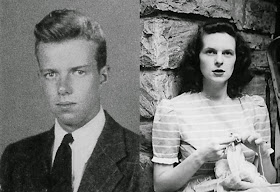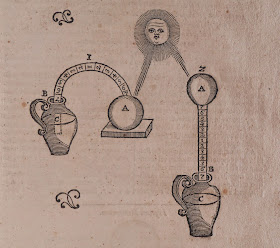 The World War II years in Hanover were marked by a sense of urgency. As young men prepared to ship out and serve, the climate became one of "eat, drink, be merry, tomorrow we die." That's how Mary Mecklin Jenkins remembered it, at least. Mary was one of many young women who met her husband - John Jenkins '43 - and fell in love during those war years, and she and he reminisced in an interview with the Dartmouth College Oral History Program in 2007, more than 60 years after the fact.
The World War II years in Hanover were marked by a sense of urgency. As young men prepared to ship out and serve, the climate became one of "eat, drink, be merry, tomorrow we die." That's how Mary Mecklin Jenkins remembered it, at least. Mary was one of many young women who met her husband - John Jenkins '43 - and fell in love during those war years, and she and he reminisced in an interview with the Dartmouth College Oral History Program in 2007, more than 60 years after the fact.Mary was a student at Skidmore College in 1942, when she returned home to Hanover to work for her father, a sociology professor, for the summer. She was dating Ernest Hemingway's son, Jack, at the time, but after a falling out with Jack led to the prospect of a dateless weekend, she agreed to attend a party with John, whom she had met several days earlier. Their practical date of convenience turned into something much more meaningful. As John said in the 2007 interview, "The chemistry started to take…63 years later, here we are with four kids and eight grandchildren."
Although John joined the Army in December 1942 and spent that first Christmas in a training camp far from Mary, the couple married in February 1944 and reunited for good in 1946 at the end of John's service. To hear their full interview, visit John & Mary's oral history page. For more World War II love stories, browse the husband/wife interviews in "The War Years at Dartmouth" collection.
Happy Valentine's Day, from Rauner to you!

